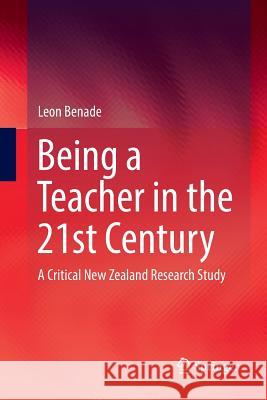Being a Teacher in the 21st Century: A Critical New Zealand Research Study » książka
topmenu
Being a Teacher in the 21st Century: A Critical New Zealand Research Study
ISBN-13: 9789811099632 / Angielski / Miękka / 2018 / 211 str.
Kategorie:
Kategorie BISAC:
Wydawca:
Springer
Język:
Angielski
ISBN-13:
9789811099632
Rok wydania:
2018
Wydanie:
Softcover Repri
Ilość stron:
211
Waga:
0.32 kg
Wymiary:
23.39 x 15.6 x 1.19
Oprawa:
Miękka
Wolumenów:
01
Dodatkowe informacje:
Wydanie ilustrowane











